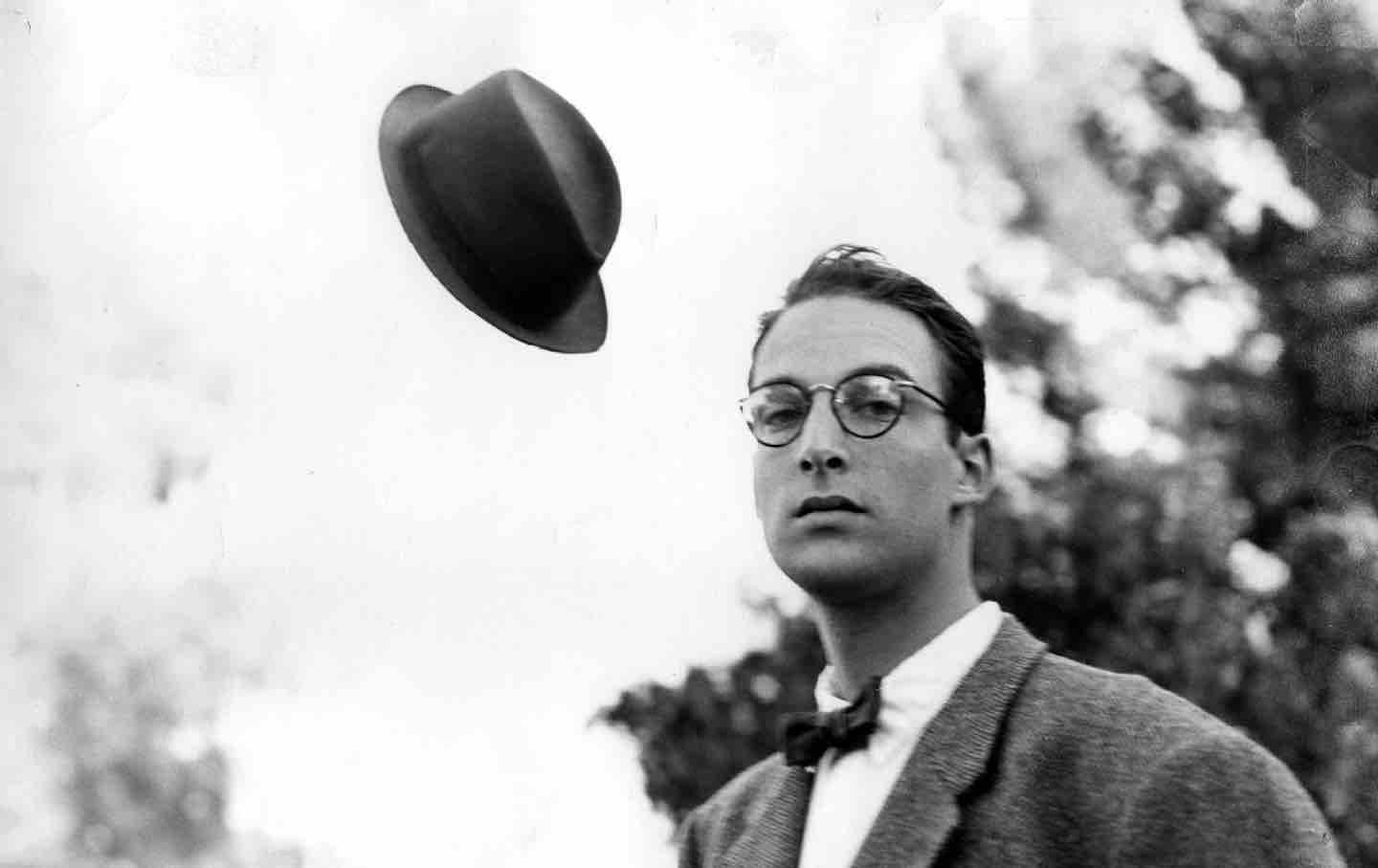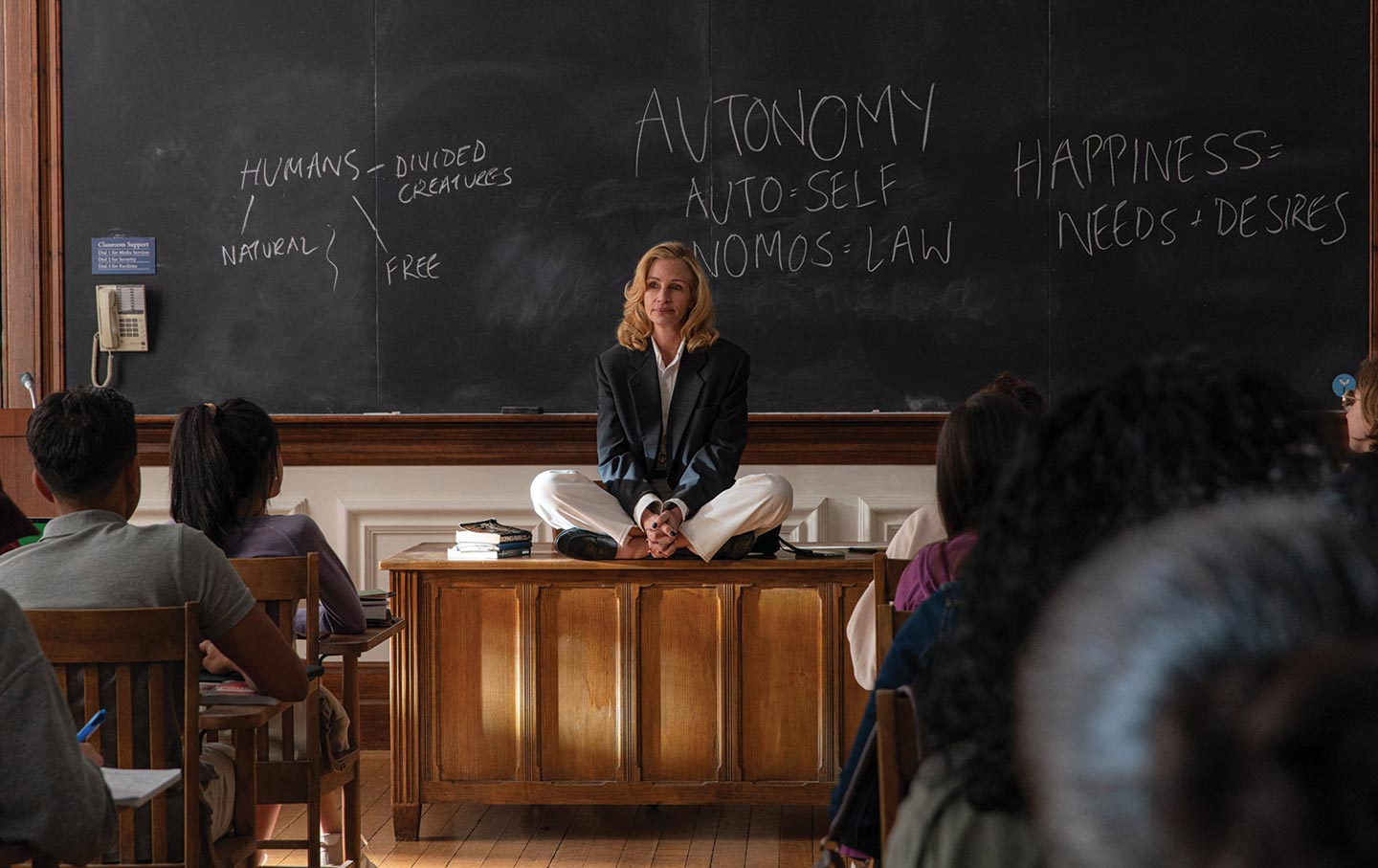In The Season, Helen Garner considers the zeal and irrationality of fandom and her country’s favorite pastime, Australian rules football.
The Sydney Swans in action.
(Tim Clayton / Fairfax Media via Getty Images).
My niece and nephew, who are not quite twins but were born within a year of each other, recently had a joint Bat and Bar Mitzvah. This, I learned, is known as a B’nei Mitzvah. Through a series of misadventures, it fell on the day of the Australian Rules Football (AFL) Grand Final, a day that is, in essence, the Australian equivalent of Super Bowl Sunday. I have three older brothers who all love the AFL, but it’s my younger sister who is our family’s most devoted fan. As the B’nei Mitzvah drew closer, I prepared to fly to Sydney from New York, where I live. A few days before I left, I spoke to my dad on the phone to discuss my travel plans and asked if my sister was really going to miss the big day to watch the Grand Final. He said that she might, and that she was extremely upset with our brother for not correcting this scheduling error earlier, and so was almost the entire family, including my nephew. At the gate, I called my mom and told her that I thought this was all obviously ridiculous—the equivalent of me threatening to miss a once-in-a-lifetime family event because it clashed with something you could, quite literally, record and watch later. This analogy only holds if you think about it logically. But, of course, my sister wasn’t being guided by logic; she was in a haze of totally irrational, all-consuming love for the Sydney Swans.
This is the kind of irrational love at the heart of Helen Garner’s new book, The Season. Her first book-length work since 2015’s This House of Grief—a brilliant and haunting work of courtroom reportage—The Season follows Garner’s grandson, Amby, through a season of under-16s AFL. To the uninitiated, AFL is one of Australia’s most popular sports. It is played with a ball that resembles an American football on a field that is three to four times larger than an NFL field. The game is continuous, with the players running up and down the field the entire time. They do not wear pads, helmets, or any other protective gear. The uniforms are literally tank tops and short shorts, meaning the players are not even protected from the natural elements, let alone each other. Though it does not have the reputation for violence that the NFL does, it is a contact sport, and if you speak to an AFL fan, they will likely concede that concussions and other brain injuries are more prevalent than one might think.
AFL is particularly popular in the state of Victoria, where it originated, and where Garner lives in a house next door to her daughter, son-in-law, and grandchildren. From the outset, The Season is a project built around Garner spending time with her youngest grandson, Amby, with whom she wants to connect more deeply as he teeters on the precipice of adulthood. Under-16s AFL is essentially a recreational league. Amby’s coach is a local 20-year-old whom Garner remembers as “only a boy,” and she wonders if “you can be a coach if you’re only five years older than the players.” So begins her immersion in the under-16s AFL. She attends training sessions and games, notebook in hand (her “badge of purpose”), initially with the goal of “effacing [herself], to become a silent witness.”
Garner admits that, while she has followed the Western Bulldogs (a professional AFL team from Melbourne) “with a passion since before [Amby] was born,” she still “barely understands the rules.” This is to the benefit of the reader. Garner discusses the rules with Amby, her son-in-law, and her friends, laying out what is essentially a social guide of the game. Many of these conversations take place with the parents of different players on the team, and she refers to them only in relation to their children: “Tom and Ned’s dad,” “Jake’s mum,” “Archie’s parents.” Indeed, she refers to her daughter and son-in-law throughout the book as “Amby’s mum and dad.” In doing so, she captures the inexplicable and beautiful myopia of sports fandom, conjuring microuniverses where football occupies every square space. These domains of fandom are, in Garner’s prose, rendered in detail almost as small still-life paintings, full of enchantment. At training one evening, “Amby’s phone is still lying in the grass. Boys step around it. The sun is low, low, low, and the air beyond the tunnel construction site is dusty with gold.” Later, “the first mozzie of the evening stings my arm. The coach leaps into the game, twists like a dancer, handballs behind him.” As the weather turns at training, “a long grey cloud swallows the moon.”
The stakes are different from Garner’s previous works of reported nonfiction, which tend toward the serious and even the macabre. Her first work of nonfiction, The First Stone, was published in 1995 and follows the case of a professor at Melbourne University who is accused of inappropriate behavior with two of his students. That was followed by Joe Cinque’s Consolation (2005), which tracks a court case in which a law student is accused of murdering her boyfriend. And most recently, This House of Grief followed the case of a man accused of drowning his children after their car nose-dived into a dam.
Midway through The Season, a friend offers Garner a lead that, at another time, she might have jumped at. Garner tells her friend that she’s writing about AFL; the friend, who is a lawyer working with the Royal Commission into Institutional Responses to Child Sexual Abuse, tells Garner that she has been approached to work with men who were abused as children within football clubs. “We’ve had no luck engaging with the higher echelons of Victorian football,” she explains. “Do you want to learn more?”
Garner is troubled by her friend’s information. In her capacity as a witness, in addition to observing the team, she has done what many people do (myself included) when they want to justify their interest in a sport, which is to intellectualize it. It is a reflection of class tensions; at other times, “a mirror of war.” On hearing about the allegations of sexual assault in football clubs, Garner berates herself for her genteel view of the sport. “What a fool I am, I think, stumping home from Pilates, to idealize the game, depicting it as a Homeric struggle full of noble manly customs and ethical training for teenage boys—and now I’m told that it’s corrupted, shot through with evil, just like everything else in this world. Why the hell am I shocked?”
The shortcomings of the AFL go beyond even what Garner includes. Despite various initiatives from the AFL, racism from within and around the sport persists, along with incidents of domestic violence. Surely, any pleasure derived from playing or watching football pales in comparison to these obvious shortcomings? In another scene, as Garner meditates on the widespread brain damage caused by multiple concussions among AFL players, her friend, “the sweetest, funniest guy you could hope to meet,” quietly tells a story of his own football days. During a Grand Final, he says, he was “knocked out cold.” When he came to, he asked which direction his team was kicking and then finished the match. “Is there a moral to this story? Nobody looks for one,” Garner writes. “We just laugh with him, almost tenderly.”
Reading The Season, I recalled conversations I’ve had with my friends in New York about football—both the American variant and the one back home. Since I moved, I’m around more people who share my indifference toward sports in general, and I sometimes find myself in conversations about the violence of football. I go quiet during these discussions, even though at home in Australia, I might be the one initiating them. Recently, one of my friends argued that, ideally, nobody would play professional football, at least in its current form. As the conversation around me became more heated, I wondered why I wasn’t saying anything. I mostly agreed with my friend, and while I tried to think of something to say in defense of football, I really couldn’t think of anything coherent. Instead, I found myself thinking of my siblings, my dad, my nephews, and my friends back home.
Something similar takes place in The Season. How can one reconcile these awful things (in this case, sexual misconduct and physical danger) with the joy Garner sees at football practice with Amby? It’s a dilemma that I have never been able to think my way out of. A lesser writer than Garner might offer the feeble argument that the good outweighs the bad—as if exultation and violence can be weighed against each other to produce a neat mathematical result—or she might acknowledge these various points of darkness and dismiss AFL altogether. Garner, instead, confronts this dilemma head-on, an approach that has always led to some of her most fascinating work. In The First Stone, she is a feminist who isn’t sure if it’s right for students to legally prosecute their professor for making unwanted advances; in This House of Grief, she refuses to capitulate to politics on either side of the courtroom, her sympathy constantly crossing the ideological lines. She has always refused to fit her ideas neatly into ideology, but she also never turns a blind eye, depicting things not as they should be but as she sees them. And so it is from inside this dilemma that the true subject of The Season is laid bare: It is not quite aging, not quite masculinity—rather, it is irrational, all-consuming love. The love Amby has for football, and the love Garner has for her grandson. “Really I’m trying to write about footy and my grandson and me,” she writes. “About boys at dusk. A little life-hymn. A poem. A record of a season we are spending together before he turns into a man and I die.”
In this way, The Season is closer to Garner’s 1977 debut, Monkey Grip, than to her other works of nonfiction. Set in Melbourne in the 1970s, Monkey Grip is a lightly fictionalized account of Garner as a young mother (depicted in the book as a woman named Nora) navigating a passionate affair with a man named Javo, who is a heroin addict. As of now, the two works bookend her career, one written from the ruthless throes of youth and one from the midst of middle age. I have always thought about the title of Monkey Grip the way I imagine most people do, as a reference to the obsessive kind of love that is foregrounded in its pages: Nora’s love for Javo, Javo’s love for heroin. It’s a wonderful metaphor for the kind of love that Garner explores in the novel, one that grabs hold of you and that you can’t shake. When I revisited Monkey Grip recently, though, I noticed that it’s Gracie, the cipher for Garner’s real-life daughter (“Amby’s mum”), who is actually described as “clinging like a monkey” to Nora. Not long after Monkey Grip was published, Garner wrote in her diary: “The only passionate love that can coexist with civilized daily working life is the love we have for our children. The other sort either loses its madness and becomes something else, or blows everything sky-high.” Reading The Season, I found that Gracie’s role in Monkey Grip was freshly illuminated; her near-constant presence is love personified. It’s notable that the viselike grip of children is present in that book as well, a kind of all-consuming love that has stretched through Garner’s writing life, rendered in The Season with a lightness that is more difficult to access in youth, and comes forth so joyously here.
If there is a parallel to be drawn between football and real life, it is perhaps through familial love, which ties us eternally to people we often do not understand. To love these people can be painful, frustrating, and unavoidable. How do we manage it? These are the mysteries of love, the monkeys on our backs.
More from The Nation

After achieving a rare crossover hit with 2005’s Crush, the poet rebelled against public attention. With I Do Know Some Things, he splays himself open for his readers.











